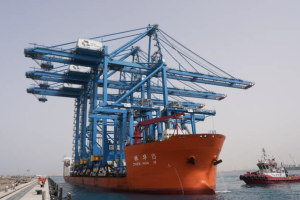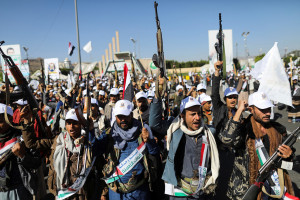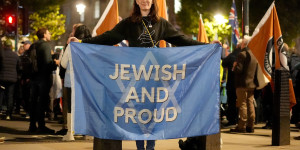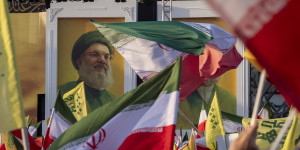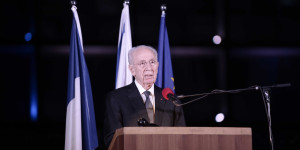Israel strikes Houthi power plants, fuel sites & presidential palace after Yemeni terrorists’ first attack with cluster warhead missile
IDF started investigation after failed missile interception on Friday
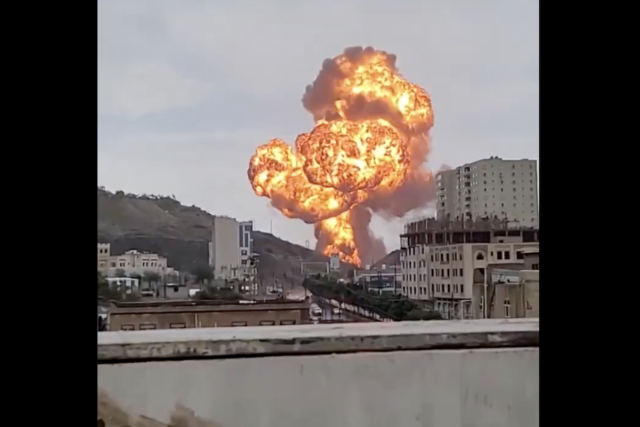
The Israel Defense Forces (IDF) struck multiple targets belonging to the Houthi terror group in Yemen on Sunday, following the group’s first attack using a missile with a cluster warhead on Israel last Friday.
The Israeli military announced that strikes hit “military infrastructure of the Houthi terrorist regime in the Sanaa area, including a military site in which the presidency palace is located, the Asar and Hizaz power plants, and a site for storing fuel; all were used for the military activity of the Houthi terrorist regime.”
A senior security source told Israeli media outlets that the strikes had concluded and included no attempts at targeted assassinations of Houthi leaders.
“The strike on the presidential compound was intended as a signal to the Houthis that their governmental sites are also in our crosshairs – but there is no known high-ranking Houthi official who was present at the site during the strike,” the official said.
According to Houthi authorities, two people were killed and 35 wounded in the strikes.
The IDF added that the strikes came in response “to repeated attacks by the Houthi terrorist regime against the State of Israel and its civilians, including the launching of surface-to-surface missiles and UAVs toward Israeli territory in recent days.”
Since the start of the Gaza War, the Houthis have sporadically but continuously attacked Israel, launching drones and ballistic missiles in an effort to support Hamas’ war against Israel.
Over the past seven days, the Houthis attacked Israel with two missiles and at least one drone. On Friday, the IDF said that a missile had disintegrated and that the air defense system had – unsuccessfully – launched interceptors at its parts.
After an investigation, the IDF confirmed on Sunday that this was the first time the Houthis had used a missile with a cluster warhead against Israel. This type of munition, whose use is outlawed by most countries, breaks apart before impact, launching numerous small bombs that fall to the ground.
“The failed interception last Friday is being investigated and is not related to the type of missile that was launched. The air defense systems are capable of handling and intercepting this type of missile – as they have done in the past,” the IDF said.
Similar types of missiles were deployed against Israel in the 12-Day War by Iran on at least two occasions and could also not be intercepted at the time. The Iranian regime is the Houthis’ major arms supplier.
One sub-warhead impacted near a home in the town of Ginaton on Friday, causing no injuries but light material damage.
Speaking to Ynet News, the homeowner, Ilana Hatoumi said, “I was sitting in the shelter, I heard a boom, everything exploded, and that’s it.”
“The glass is gone. We’re fine, I’m healthy. Nothing happened, everything can be fixed, it’s only material damage,” she said.
The Israeli strikes on Sunday involved around 12 aircraft, including fighter jets and refuelers, and saw some 35 munitions being launched at the four targets, according to the IDF. These were the 15th strikes Israel has launched at the Houthis in Yemen, located some 1,800 kilometers (1,100 miles) away, since the start of the war.
The operation was observed by Prime Minister Benjamin Netanyahu and Defense Minister Israel Katz, who jointed IDF Chief of Staff Lt. Gen. Eyal Zamir and other senior officers in the Air Force’s command center at the military headquarters in Tel Aviv.
“The presidential palace in the Sanaa area is located within a military site from which the military forces of the Houthi terrorist regime operate,” the military noted.
“In addition, the Hizaz and Asar power plants were struck, which served as a significant electricity supply facility for military activities. The strike on the power plants damages the production and supply of electricity for military purposes. The use of these plants constitutes further proof of how the Houthi regime uses civilian infrastructure for military purposes.”
The military vowed to continue to combat “the ongoing and repeated attacks of the Houthi terrorist regime against the State of Israel, and remains determined to continue removing any threat posed to the civilians of the State of Israel, wherever it is required.”

The All Israel News Staff is a team of journalists in Israel.
You might also like to read this:


